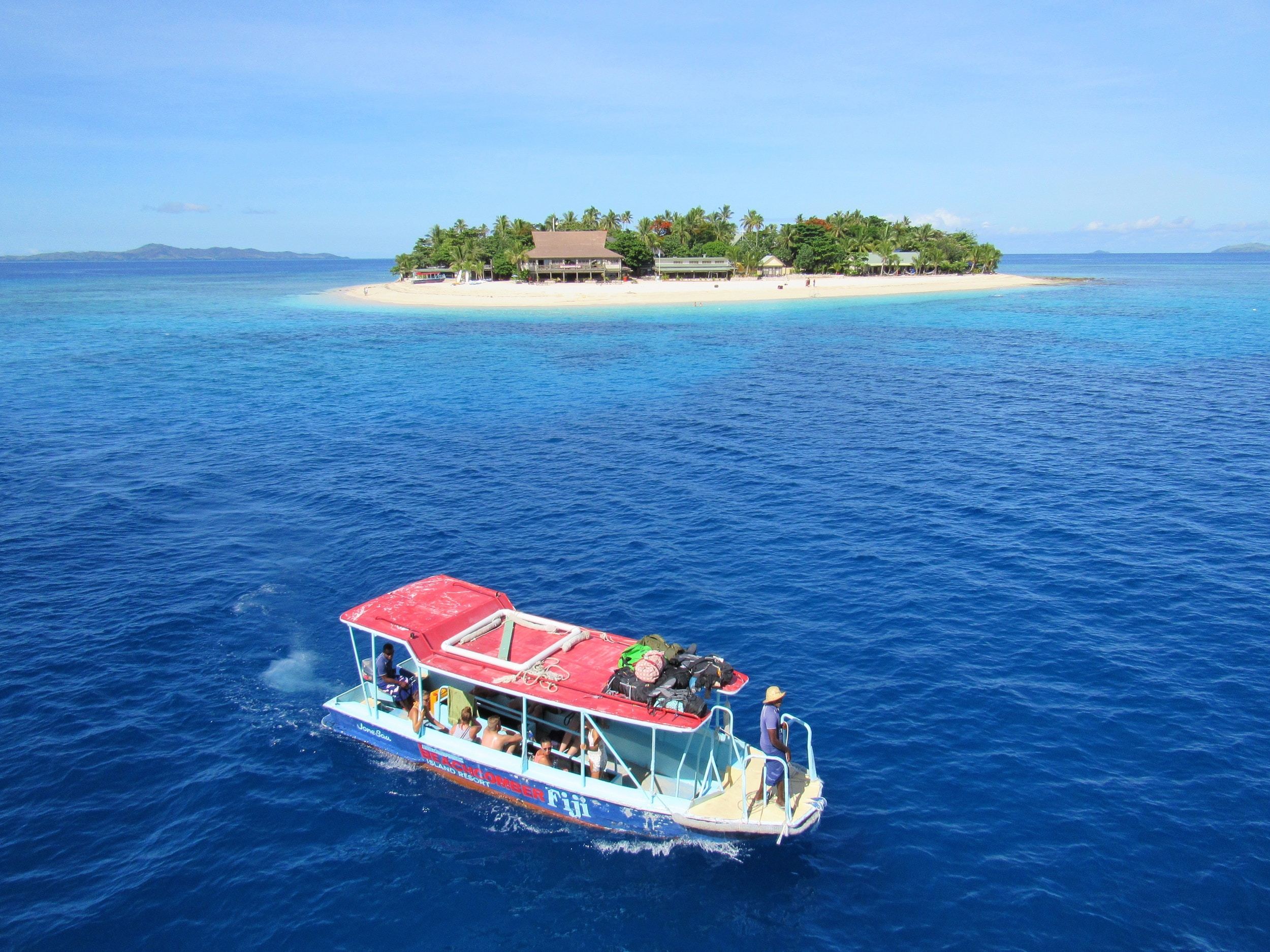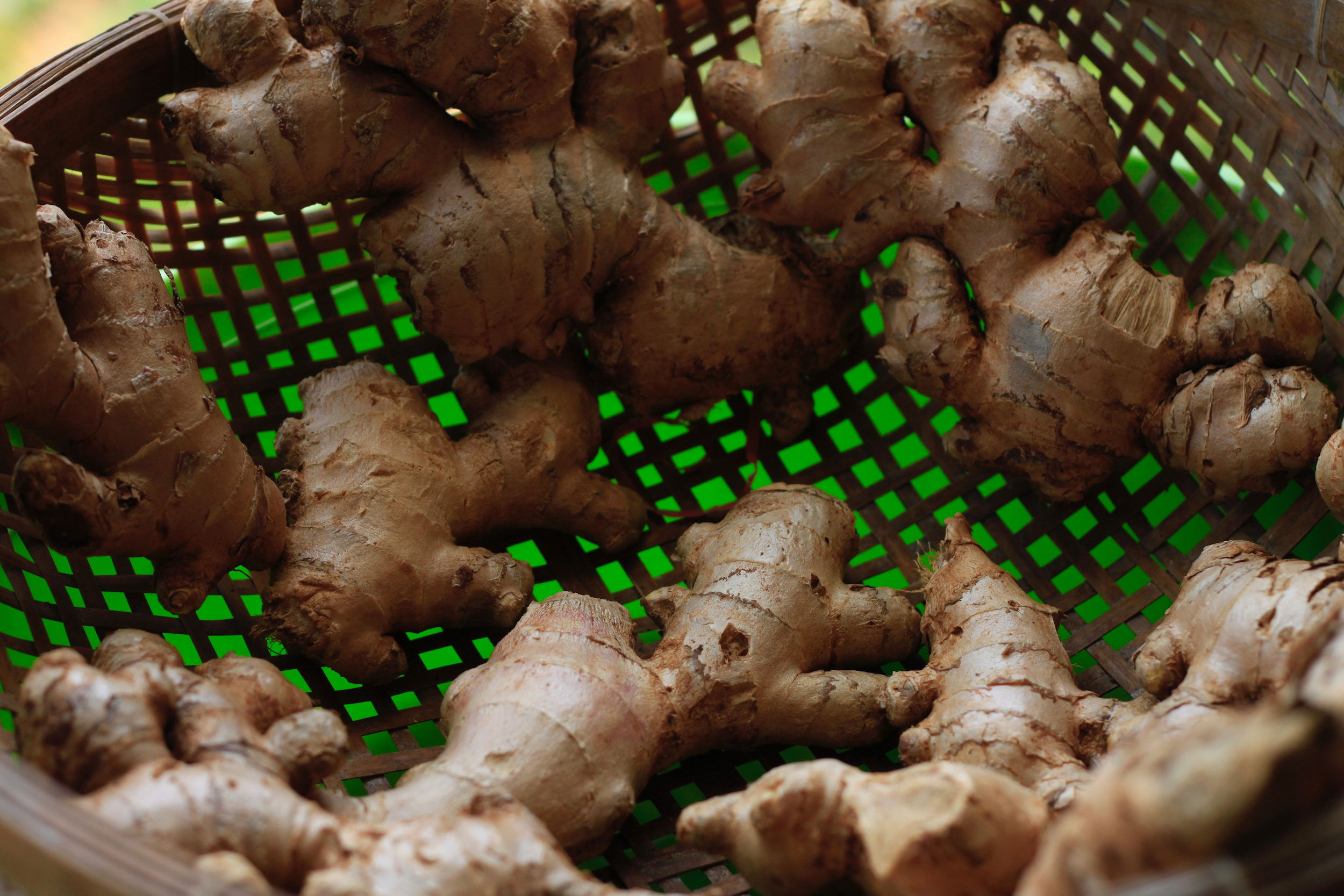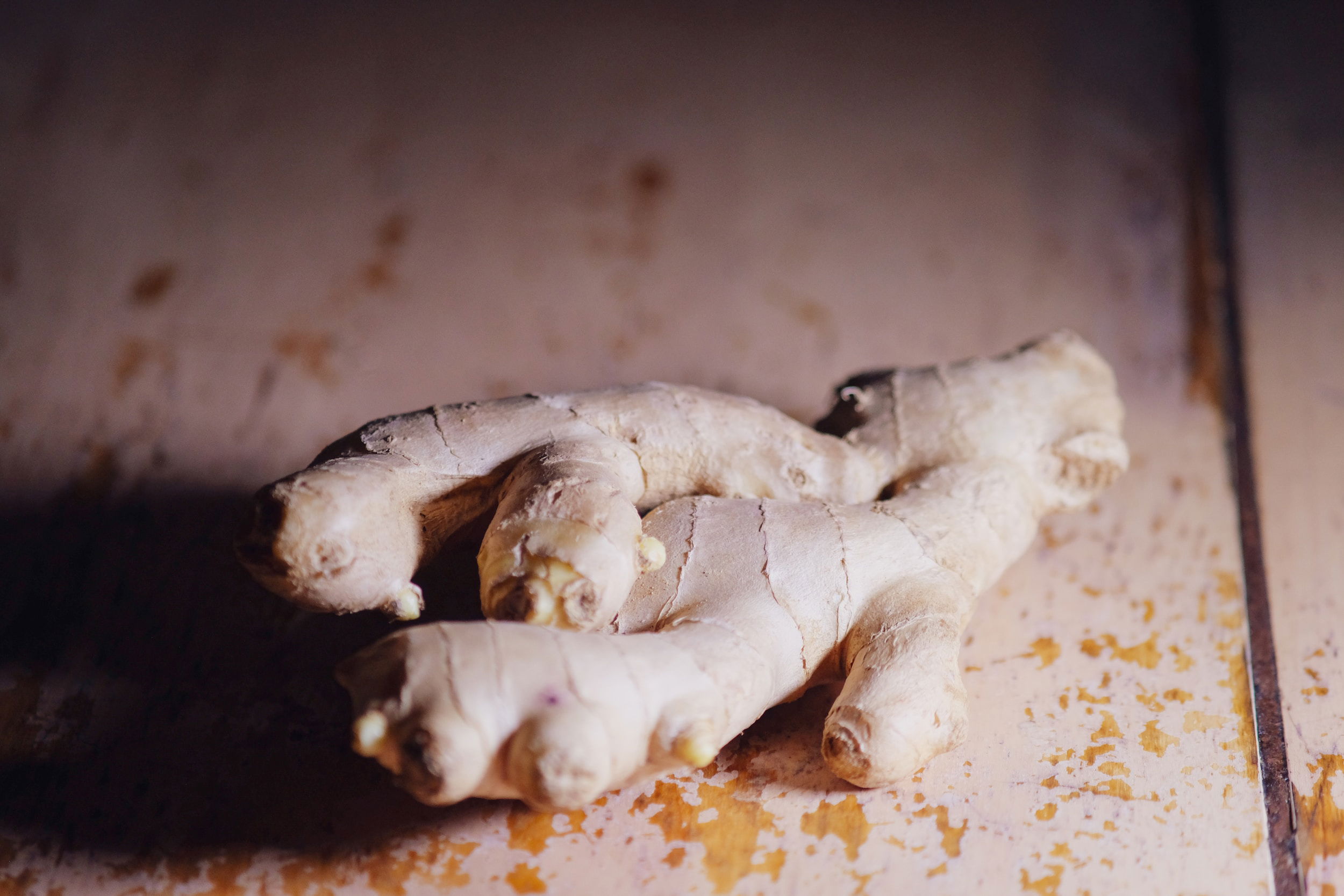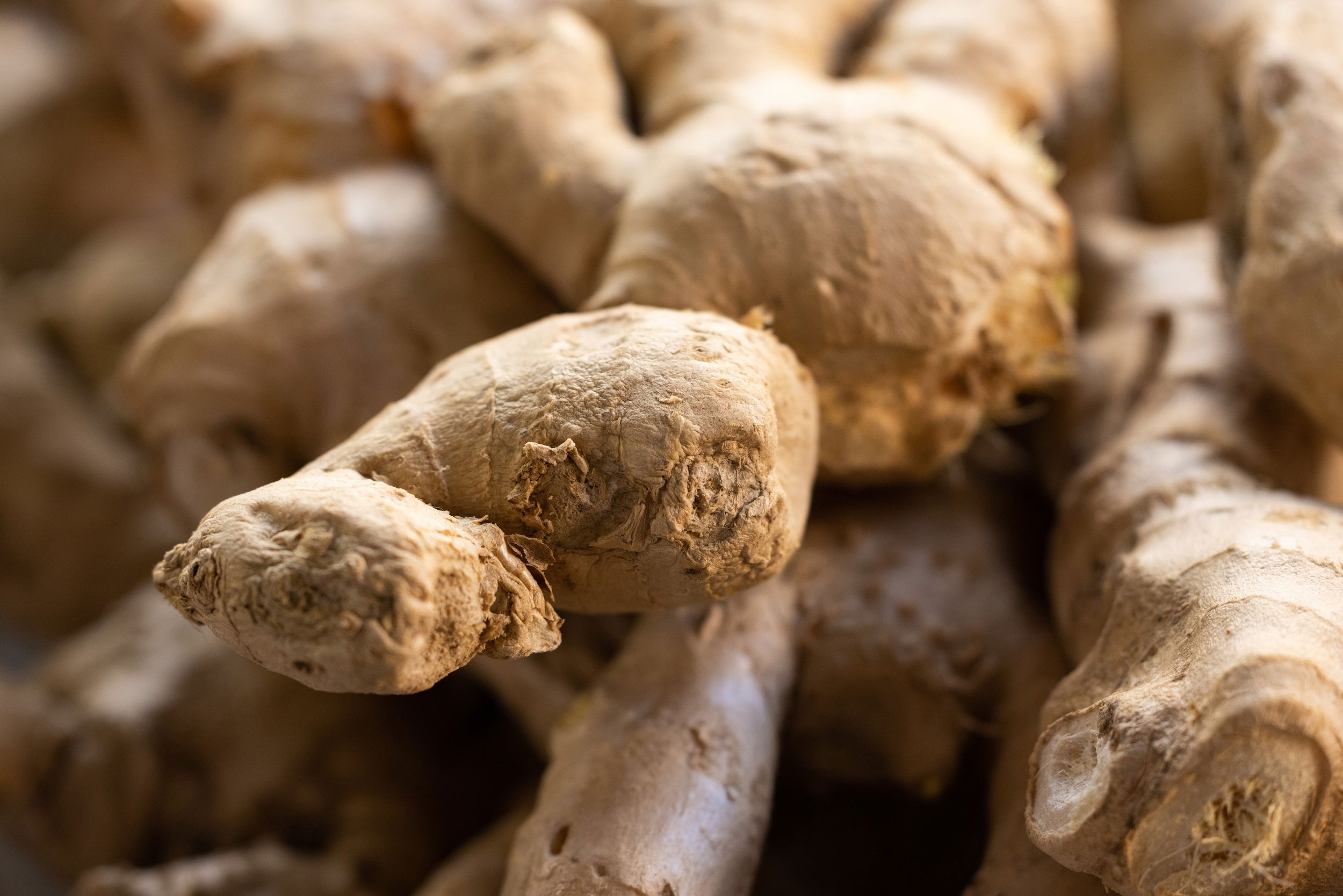Fresh Ginger in Fiji Island
Fresh ginger has been an important part of the culture and cuisine of Fiji Island for centuries. Known for its unique flavor and medicinal properties, ginger has played a significant role in the traditional practices of Fijian medicine, cooking, and ceremonies. Beyond its cultural significance, ginger has also emerged as an important export crop in Fiji Island's economy, with the country becoming one of the largest producers of ginger in the world. In this article, we delve into the history, cultural significance, nutritional and medicinal benefits, traditional and modern uses, challenges and opportunities, and future prospects of fresh ginger in Fiji Island.
1. Introduction to Fresh Ginger in Fiji Island
Fresh ginger, a spice derived from the root of the ginger plant, has been an integral part of Fijian culture and cuisine for centuries. This article explores the historical and cultural significance of fresh ginger in Fiji Island, as well as the nutritional and medicinal benefits it provides. Additionally, we'll delve into the traditional uses of fresh ginger in Fijian cuisine and medicine.

2. Historical and Cultural Significance of Fresh Ginger in Fiji Island
The Arrival of Fresh Ginger in Fiji Island
Ginger is not native to Fiji Island but was brought to the island by early Polynesian explorers or traders. The exact date of its arrival is unknown, but it is believed to have been introduced to the island sometime around 1000 AD.
Ginger has been a significant part of Fijian culture for centuries. In traditional Fijian medicine, ginger has been used as a remedy for a variety of ailments, from colds and coughs to stomach problems and headaches. Ginger was also thought to have pain-relieving properties and was used to ease menstrual cramps and joint pain.
Traditional Uses of Ginger in Fijian Culture
Ginger in Fijian Folklore and Mythology
Ginger holds a special place in Fijian folklore and mythology. According to legend, ginger was an essential ingredient in a potion that granted immortality. Some stories even suggest that ginger was used to summon spirits or as a talisman for protection against evil.

3. Nutritional and Medicinal Benefits of Fresh Ginger in Fiji Island
Chemical Composition of Ginger and its Benefits
Fresh ginger is rich in vitamins and minerals, such as vitamin B6, magnesium, and potassium. It also contains numerous bioactive compounds, including gingerols and shogaols, which have anti-inflammatory and antioxidant properties.
Medicinal Properties of Ginger in Fijian Medicine
In traditional Fijian medicine, fresh ginger has been used to treat a variety of ailments such as colds, coughs, and stomach problems. Furthermore, ginger has also been used as a natural remedy to alleviate nausea and vomiting.
Ginger as a Source of Nutrition in Fijian Diet
Ginger is a common ingredient in Fijian cuisine, particularly in curries, stews, and soups. Incorporating fresh ginger in the diet can provide a wide range of health benefits, such as improving digestion, reducing inflammation, and boosting the immune system.

4. Traditional Uses of Fresh Ginger in Fijian Cuisine and Medicine
Ginger in Fijian Cooking
Ginger is a versatile spice in Fijian cuisine, used in a variety of dishes, including curries, stews, and soups. Fresh ginger adds a pungent and spicy flavor to dishes and is often paired with other spices such as garlic and chili.
Ginger as a Remedy for Common Ailments in Fijian Medicine
Fresh ginger has been used for centuries in Fijian medicine to treat a range of ailments. Ginger tea, made from boiling fresh ginger root, is a popular remedy for colds, coughs, and sore throats. Ginger is also used to alleviate nausea and vomiting, stomach problems, and digestive issues.
Ginger in Traditional Fijian Ceremonies
In traditional Fijian ceremonies, fresh ginger is often used as an offering to the gods. Ginger is believed to have purifying properties and is used to ward off evil spirits. Ginger is also used as a traditional remedy for women during childbirth, as it is believed to have pain-relieving properties.
In conclusion, fresh ginger has played a significant role in Fijian culture and cuisine for centuries, from its arrival on the island to its uses in traditional Fijian medicine and ceremonies. Incorporating fresh ginger in the diet provides numerous health benefits and is a delicious addition to many Fijian dishes.

5. Modern Applications of Fresh Ginger in Fiji Island's Economy
The Ginger Industry in Fiji Island
Fresh ginger has been an integral part of Fiji Island's economy for generations. Today, ginger is one of the most important agricultural crops in Fiji Island. The ginger industry in Fiji Island is mainly focused on the production of fresh ginger for local consumption and the export market. Farmers in Fiji Island cultivate several varieties of ginger, including the popular Fijian Blue and Red Ginger varieties.
Ginger as an Export Crop in Fiji Island
Ginger is one of Fiji Island's most important export crops, with significant sales to countries like Japan, South Korea, and Australia. Ginger from Fiji Island is highly sought after, as it is known for its distinctive flavor and aroma. The export of ginger has had a positive impact on the economy of Fiji Island by providing new opportunities for farmers, small businesses, and creating jobs in the transport and logistics sectors.
Use of Ginger in Fijian Beauty Products
Fresh ginger is used in a variety of beauty products in Fiji Island. Ginger’s anti-inflammatory properties make it an excellent ingredient for skincare products, promoting healthy and glowing skin. Ginger is also a popular ingredient in haircare products, as it promotes hair growth and can help alleviate dandruff.

6. Challenges and Opportunities in the Fresh Ginger Industry in Fiji Island
Challenges Facing the Ginger Industry in Fiji Island
Despite its importance to the economy, the ginger industry in Fiji Island faces several challenges. The industry is highly susceptible to natural disasters like floods and cyclones that damage crops and disrupt the supply chain. Furthermore, the industry is highly competitive, with competition from other ginger-producing countries around the world.
Opportunities for Growth in the Ginger Industry in Fiji Island
Despite these challenges, there are opportunities for growth in the ginger industry in Fiji Island. The rising demand for organic and sustainable products presents an opportunity for Fijian ginger farmers to differentiate their products and gain a competitive advantage in the global market. The government of Fiji Island is also investing in research and development to improve the quality and yield of ginger crops.
Ginger Research and Development in Fiji Island
The Fiji National University's ginger research program has been working tirelessly to improve the quality and yield of ginger crops in Fiji Island. They have developed new ginger varieties that are more resistant to pests and diseases, and also have a higher yield potential. Additionally, the university has been conducting research on post-harvest handling and processing techniques to improve the shelf life of ginger and reduce waste.

7. Future Prospects and Sustainability of Fresh Ginger in Fiji Island
The Role of Ginger in Fiji Island's Future Development
The ginger industry is expected to play a significant role in Fiji Island's future development. The government is investing in infrastructure development, including the construction of new roads and bridges, to improve the transportation of goods from farms to markets. The industry is also expected to create new job opportunities, particularly in rural areas.
Sustainable Practices in Ginger Cultivation and Harvesting
Sustainability is a crucial aspect of the ginger industry in Fiji Island. Farmers are encouraged to adopt sustainable farming practices, such as crop rotation and the use of organic fertilizers, to maintain soil health and reduce environmental impact. Additionally, farmers are trained on proper water conservation practices to ensure sustainable irrigation.
The Future of Ginger Processing and Marketing in Fiji Island
The future of ginger processing and marketing in Fiji Island is bright. The government is encouraging the establishment of small and medium-sized processing plants to add value to ginger products before export. Additionally, the government is working to establish direct trade links with international buyers, which will eliminate the middlemen and increase profits for farmers.

8. Conclusion: The Importance of Fresh Ginger in Fiji Island's Heritage and Health
Summary of Fresh Ginger's Significance in Fiji Island
Fresh ginger has been an integral part of Fiji Island's heritage and economy for generations. The ginger industry in Fiji Island is a significant contributor to the country's economy and has created new opportunities for farmers and small businesses. Ginger's versatility as an ingredient in food, skincare, and haircare products has ensured that it remains relevant and in high demand.
The Future of Fresh Ginger in Fiji Island
The future of fresh ginger in Fiji Island is bright. The government's commitment to research and development, infrastructure development, and sustainable practices will ensure the longevity and growth of the industry. As global demand for organic and sustainable products continues to rise, Fiji Island's ginger industry is well-positioned to capitalize on these trends and establish itself as a leading producer of high-quality, sustainable ginger products. In conclusion, fresh ginger remains a vital component of Fiji Island's heritage and health. From traditional remedies to modern beauty products, ginger has been utilized in various ways and continues to be a significant export crop for the country. As the ginger industry in Fiji Island faces challenges and opportunities, it is crucial to adopt sustainable practices to ensure its longevity. Furthermore, the continued exploration of ginger's nutritional and medicinal benefits can potentially lead to new opportunities for the Fijian economy and the health of its people.

FAQs
What are some traditional uses of fresh ginger in Fijian culture?
Fresh ginger has been utilized in various ways in Fijian culture. It is commonly used in cooking, such as in curries, stews, and baked goods. Ginger is also used in traditional Fijian medicine to treat various ailments, including stomachaches, nausea, and coughs. Additionally, ginger has played a role in Fijian ceremonies, such as the sevusevu, where it is presented to chiefs as a symbol of respect.
How is fresh ginger used in modern-day Fiji Island?
Today, fresh ginger is not only used in Fijian cuisine and medicine but has also become an important export crop for the country. Fiji Island is one of the largest producers of ginger in the world, and ginger is used in various products, including teas, beauty products, and essential oils.
What are the nutritional and medicinal benefits of fresh ginger?
Fresh ginger is a rich source of antioxidants and has anti-inflammatory properties. It is commonly used to treat nausea, vomiting, and indigestion. Ginger can also alleviate pain and stiffness associated with arthritis, improve cholesterol levels, and boost the immune system.
What are some sustainability practices in ginger cultivation and harvesting?
Sustainable practices in ginger cultivation and harvesting involve reducing the use of chemicals, promoting biodiversity, conserving water resources, and reducing waste. Crop rotation, intercropping, and composting are also used to enhance soil fertility and reduce soil erosion. Additionally, responsible water management practices, such as drip irrigation and rainwater harvesting, can reduce water usage while improving crop yield.
